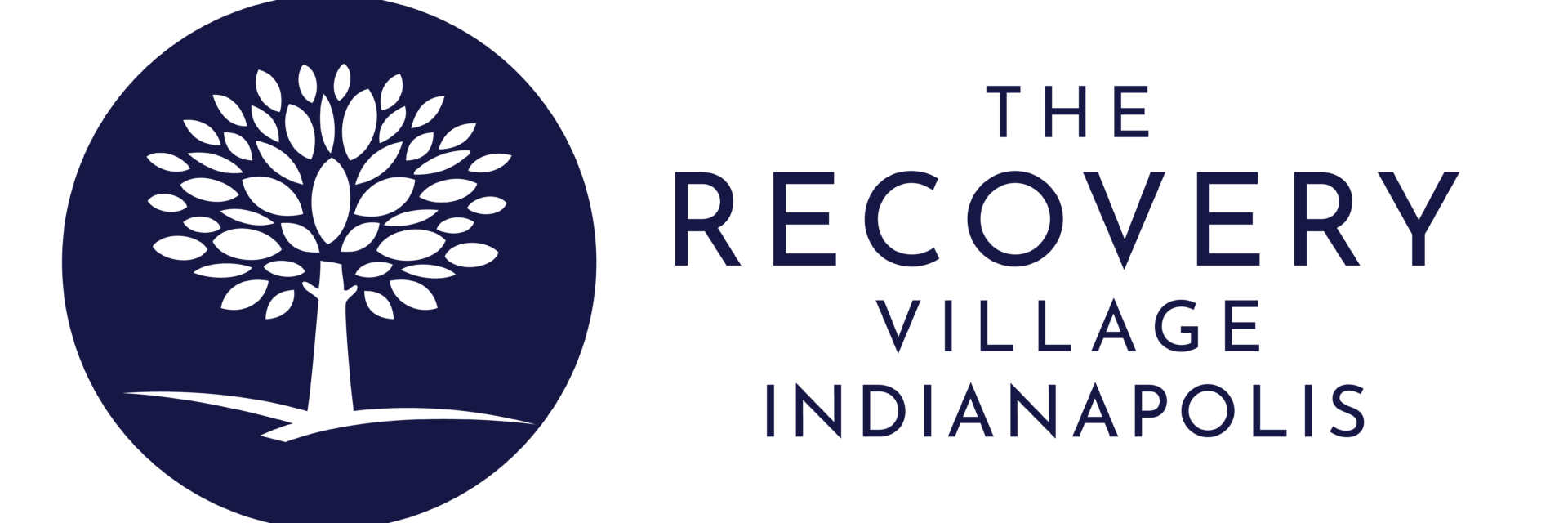Drug Detox: Side Effects, Process & Detox Centers Near Indianapolis

By The Recovery Village Indianapolis
Editor Heather Lomax | Medical Reviewer Jenni Jacobsen, LSW
Last Updated: December 21, 2023
Editorial Policy | Research Policy
Detox is the process of getting rid of harmful substances like drugs or alcohol from your body. It’s usually the first step in treating substance use problems. Medical detox, supervised by experts, makes it safer and more comfortable. It’s an important part of the overall treatment process.
What Is Drug Detox?
When you use substances for a while, your body adjusts to their presence. Drug detox is when toxic substances are removed from the body, and it’s typically the first step in a more comprehensive treatment plan. The goal of detox is to manage and alleviate withdrawal symptoms.
Withdrawal symptoms are psychological and physical reactions. They occur when a person suddenly quits using a substance or significantly reduces their use. Withdrawal symptoms vary depending on the specific substance. They also depend on the duration of use and a person’s overall health.
Drug detox is a natural process. However, there are also professional drug detox programs, often called “medically-managed detox.” These programs use interventions like medications and other therapeutic approaches. They do this to safely manage the side effects that can accompany quitting drugs or alcohol and to keep patients as comfortable as possible.
The Process of Medical Detoxification
A professional detox program will often integrate three primary components. These include:
- Evaluation: Clinical professionals at a detox center thoroughly evaluate a patient’s physical and psychological history and condition. An initial evaluation can assess acute intoxication and withdrawal potential. It is likely to include a blood draw to determine what substances a person has been using. The assessment helps professionals recommend a level of detox care. They can then create an individualized treatment plan.
- Stabilization: This phase occurs after an individualized treatment plan is created. Prescribed medications and therapies are administered. The goal is to help the patient safely detox and reach a substance-free state.
- Transitioning into long-term treatment: Detox alone isn’t going to give someone what they need for long-term recovery; it doesn’t address underlying contributors to substance use. Instead, the goal of detox is to prepare patients for their next phase of rehab, such as residential treatment. During this phase, treatment providers work with the patient to develop a plan for continuing care.
Professional Detoxification vs. Quitting Cold Turkey
Quitting cold turkey refers to suddenly stopping drugs or alcohol when dependent on them. Typically, the person does this alone without medical guidance or a taper schedule. This method can cause complications that may be life-threatening. For example, alcohol, when abruptly stopped, can cause seizures, delirium and even death.
Quitting opioids cold turkey isn’t usually fatal, but still, the symptoms can be very uncomfortable, raising the risk of relapse.
It’s always a good idea to consult with a professional before you stop using any substance you’ve regularly used.
Detoxing at Home: Risks and Considerations
Detoxing at home without supervision from professionals can be extremely risky. This is especially true for substances like alcohol and benzodiazepines.
Some of the major risks of detoxing at home include:
- Potentially life-threatening medical complications, such as seizures, hallucinations or delirium tremens.
- The severity of withdrawal symptoms is unpredictable and varies widely. If you don’t have a professional assessment, it’s impossible to predict the intensity of the withdrawal symptoms you may experience.
- Withdrawal symptoms can include anxiety, depression, intense cravings and general distress. Professional support can help with these emotional difficulties.
- If you detox at home, you won’t have access to medication-assisted treatment. Detox medications for alcohol and opioids are widely available. They can help manage withdrawal symptoms and reduce cravings.
- Dehydration and nutritional deficiencies can occur if you detox at home.
- You won’t have the level of emotional support at home that you would in a professional setting.
- The risk of relapse during the withdrawal process goes up without professional help. You might try to use substances to alleviate your uncomfortable symptoms.
- Even if you successfully detox at home, it doesn’t address the underlying issues contributing to substance use. Detoxing at home could cause a delay in your seeking a structured treatment plan.
Treatment Options After Detox
Once you complete detox, you can transition to ongoing addiction treatment. During this time, you address the underlying issues contributing to substance use. In turn, this supports long-term recovery. Many treatment options are available. However, the right choice for you will depend on several factors. These include your individual needs, addiction severity and any co-occurring mental health disorders you may have.
Standard treatment options after detox can include:
- Inpatient or residential rehab: This is when you stay in a facility and have a structured, supportive environment.
- Outpatient rehab: This program lets you live at home while you attend scheduled treatment sessions during the week.
- Partial hospitalization programs (PHPs): A PHP offers structured, intensive treatment during the day. These programs let individuals return home in the evenings. However, they provide more intensive care than a standard outpatient program.
- Intensive outpatient programs (IOPs): An IOP has more frequent, extended treatment sessions than standard outpatient rehab. These programs are a middle ground between inpatient and outpatient rehab.
Treatment plans may include individual counseling, group therapy and ongoing medication-assisted treatment. Support groups like a 12-step program and aftercare are often integrated into long-term treatment plans as well.
Types of Detox Programs
There are different types of professional detox programs available. The Substance Abuse and Mental Health Services Administration (SAMHSA) identifies five levels of care.
These include:
- Ambulatory Detoxification Without Extended On-Site Monitoring: This is an organized outpatient level of care, with monitoring at predetermined intervals. This can take place in a physician’s office, for example, or under the supervision of a home health care provider.
- Ambulatory Detoxification With Extended On-Site Monitoring: This is similar to the level above but requires that credentialed nurses who can monitor patients several hours a day be available.
- Clinically Managed Residential Detoxification: This includes 24/7 supervision but with minimal medical oversight. Instead, there’s a focus on social and peer support.
- Medically Monitored Inpatient Detoxification: This level of care is more restrictive. It includes 24/7 inpatient supervision and support.
- Medically Managed Intensive Inpatient Detoxification: The most restrictive level of care within the spectrum of detoxification, this includes around-the-clock care and supervision for patients going through withdrawal symptoms in an acute inpatient setting.
The Cost of Detox and Financial Considerations
The cost of detoxing depends on the payment method, the detox center and the level of care provided. Insurance policies often cover the costs of detox fully or partially. Free programs and Medicaid options are available, too. If you’d like to learn more about paying for detox at The Recovery Village Indianapolis Drug and Alcohol Rehab, our team can help.
Choosing the Right Detox Center
When you’re searching for a qualified drug and alcohol detox center, you want to make sure you do your research and ask any questions you might have. You can learn about the credentials of the clinical staff and rehab center. There are a lot of non-government entities with accreditations that are meaningful indicators of the level of care you can expect.
It’s important to choose an accredited facility that employs licensed medical professionals and addiction treatment workers. A facility should be willing to provide you with information about its services and the staff members it employs.
Tips for Finding the Best Detox Center
To find a good detox center, you can read reviews from other clients. This will give you an idea of what to expect from the program and help you spot any warning signs from certain centers. For example, you should be cautious if a center does not have a street address or asks for payment before an inpatient evaluation. Other warning signs include a lack of medical professionals on-site or unrealistic claims about the program’s success.
Start Recovery with Medical Detox at The Recovery Village Indianapolis Drug and Alcohol Rehab
The Recovery Village Indianapolis Drug and Alcohol Rehab offers expert-led and evidence-based detox programs, as well as addiction treatment services. Contact us to learn more about our detox and rehab process and programs, whether you’re searching for a detox center for yourself or a loved one.
Sources
SAMHSA. “Detoxification and Substance Abuse Treatment.” NIH National Library of Medicine, 2006. Accessed December 13, 2023.
Diaper, Alison, M. et al. “Pharmacological strategies for detoxification.” NIH National Library of Medicine, February 2014. Accessed December 13, 2023.
Bayard, Max MD, et al. “Alcohol Withdrawal Syndrome.” American Family Physician, March 15, 2004. Accessed December 13, 2023.
Food and Drug Administration. “Information about Medication-Assisted Treatment (MAT).” May 23, 2023. Accessed December 13, 2023.
Substance Abuse and Mental Health Services Administration. “Detoxification and Substance Abuse Treatment.” 2015. Accessed December 20, 2023.


